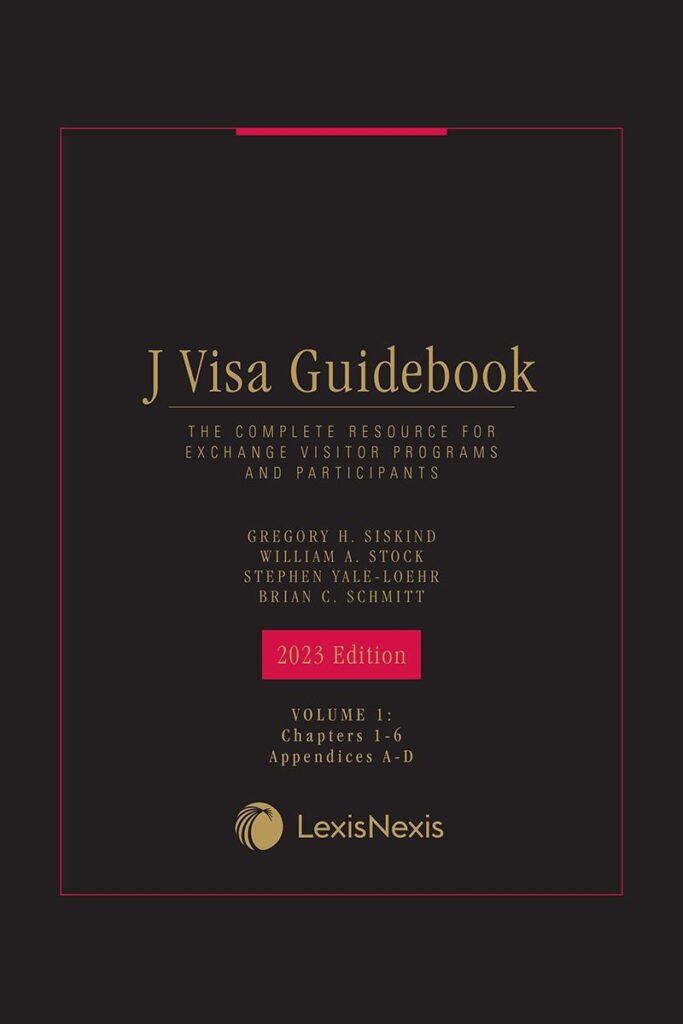J-1 exchange visitors become eligible to apply for a change of status to another nonimmigrant classification or for adjustment of status to become a U.S. permanent resident when their J-1 waiver applications are recommended and approved by all relevant entities. The waiver of the two-year foreign residence requirement does not itself confer any nonimmigrant or immigrant status upon its beneficiary; the waiver merely relieves the exchange visitor of the foreign residence requirement, enabling him or her to file a petition for another status by which to remain lawfully present in the United States.
I-612 hardship and persecution waiver applications are adjudicated in three steps: (1) U.S. Citizenship and Immigration Services (USCIS) determines whether the applicant’s departure would impose exceptional hardship on the applicant’s qualifying relative(s) or whether the applicant has demonstrated a well-founded fear of facing persecution on return to their country of nationality or last residence on account of race, religion, or political opinion; (2) If USCIS determines that the applicant has met his or her burden of proof, it requests a recommendation from the U.S. Department of State Waiver Review Division (DOS-WRD); (3) If DOS-WRD makes a favorable recommendation, USCIS will grant the waiver if it finds such a grant to be in the public interest.
Short Summary
- Litigating a J-1 visa waiver matter is a complex process requiring expert legal representation as federal agencies and courts play an important role in these matters.
- The Administrative Appeals Office (AAO) and the Administrative Procedure Act (APA) provide mechanisms for challenging USCIS and DOS decisions.
- Skilled J-1 visa lawyers can provide guidance in understanding federal laws and procedures necessary to successfully navigate the federal agencies and courts involved in waiving the J-1 foreign residence requirement or litigating unsuccessful outcomes.
Adverse Decisions by USCIS

Waiver applications denied by USCIS without seeking recommendation from DOS are subject to administrative review by USCIS’ AAO, which subjects appeals to de novo (renewed) review. As such, one advantage to filing an administrative appeal is that new evidence can be submitted with the appeal and it will be considered by the AAO.
The AAO reports that 75% of these cases are reviewed within 180 days; 25% take longer. Our firm typically files lawsuits seeking review of denied 1-612 cases because the government is required to file a responsive pleading after the complaint and summons are served within 60 days.
These denials are also subject to judicial review. The drawback to federally litigating such cases is review is limited to the administrative record, and the government objects to supplementing the administrative record. To overcome this, our firm has filed de novo (renewed) waiver applications concurrently with complaints, which allows us to negotiate with DOS to alternatively reopen and favorably adjudicate the de novo case in exchange for a dismissal of the litigation.
“Not favorable” Issued by DOS
Pursuant to the Immigration and Nationality Act, Section 212(e), also referred to as INA § 212(e), USCIS may not grant a J-1 waiver if the DOS issues a “not favorable” recommendation. Both agencies must agree to the waiver for it to be granted. There is no administrative review available at the DOS or USCIS when a USCIS J-1 waiver denial is based on a negative recommendation from the DOS. As such, these types of decisions are generally considered to be final and unreviewable decisions. In such situations, the DOS has stated that the only recourse is to re-file a de novo (renewed) application, which is sometimes successful. However, our firm has been able to overcome such recommendations through litigation over the years.
The Administrative Procedure Act (APA)
There have been many challenges to judicial review filed in response to these adverse waiver decisions using the Administrative Procedure Act (APA), which provides that federal administrative agency action is generally reviewable for abuse of discretion. Nearly all reported attempts at litigation on the second step of the waiver process have been unsuccessful because the DOS has argued that its decisions are isolated from judicial review based on a narrow exception in the APA, which states that judicial review of an agency’s action is precluded when “the action is committed to agency discretion by law.”
Notwithstanding this unfavorable decisional law concerning review of adverse waiver denials based on “not favorable” recommendations, our firm has won several such cases over the years. The majority of these lawsuits resolved after the filing of the complaint.
- Alabbady v. Tillerson, 17-cv-464-MWB (M.D. Pa. March 16, 2017). This was an APA suit seeking review of a DOS “not favorable” recommendation and USCIS denial of an 1-612 hardship waiver application for an applicant subject to the two-year foreign residence requirement based on graduate medical education. Both agencies immediately acquiesced to the grant of the waiver and the suit was voluntarily dismissed after the clients received the waiver.
- Meouchy v. Tillerson, 17-cv-466 (D.D.C. March 15, 2017). This was an APA suit seeking review of two DOS “not favorable” recommendation and a USCIS denial of two 1-612 hardships waiver applications for two J-1 medical doctors. During the course of the litigation, one of the J-1 physicians sought and obtained a Conrad 30 waiver. The government said they would not issue his hardship waiver application post-Conrad 30 grant. This unlawful policy of “one waiver to a customer” was challenged, and the government ultimately acquiesced to the grant of both waiver applications. The suit was voluntarily dismissed after the clients received the waivers.
- Castillo v. Johnson, 16-cv-01784 (D.D.C. Sept. 6, 2016). This was an APA review of a Department of Homeland Security (DHS) denial of an I-612 persecution waiver application. The government immediately acquiesced and granted the waiver. The suit was voluntarily dismissed shortly after the clients received the waiver. This case never received a “not favorable” recommendation from DOS.
- Fabry v. Kerry, 14-cv-01261-JCH (D. Conn. Sept. 2, 2014). This was an APA suit seeking review of DOS “not favorable” recommendation. The waiver was granted after significant litigation, and the case was voluntarily dismissed shortly after the waiver was received.
- Khan v. Kerry, 14-cv-01338 (C.D. Cal. Feb. 20, 2014). This was an APA suit seeking review of DOS “not favorable” recommendation and USCIS denial of an I-612 hardship waiver case. Both agencies immediately acquiesced to the grant of the waiver and the suit was voluntarily dismissed after the clients received the waiver. In this case, our firm also challenged the DHS and DOS regulations that make J-2s subject when the J-l is subject. Those regulations are inconsistent with the plain language of the statute and both regulations were not properly promulgated under the APA. That count created significant leverage to win the waiver. This suit was ultimately dismissed after the waiver was received.
- Lee-Lewis v. Clinton, 2- l3-cv-00080-LGW-RSB (D.S. Ga. June 9, 2013). This was an APA suit seeking review of a DOS “not favorable” recommendation in a no objection case. DOS granted the waiver about 40 days after the suit.
Questions of Fulfillment and H1-B Visa Status
Other issues concerning the two-year foreign residence requirement have been litigated or are under pending litigation.
For example, Sardarli v. Johnson, 16-cv-00112-KBJ (D.D.C. Jan. 21, 2016). This was an APA review of USCIS denial of employment-based adjustment of status cases for husband and wife for lack of fulfillment of the two-year foreign residence requirement. USCIS denied these cases, claiming that demonstrated fulfillment time did not count because the trips to the home country were too short and, as such, short trips did not count toward fulfillment time because the applicant was not “residing.” DHS immediately acquiesced to the grant of the adjustment of status cases. The suit was dismissed shortly after the arrival of the green cards.
At this time, fulfillment cases could be won by providing copious amounts of evidence that the applicant had fulfilled his or her two-year foreign residence requirement. Note under Patel v. Garland, 596 U.S. 328 (2022), applicants can no longer obtain judicial review of adjustment denials in removal and affirmative applications.
In Atanackovic v. Duke, 17-cv-944-WKS (W.D.N.Y. Oct. 3,2017), plaintiffs sought judicial review of Custom and Border Protection’s (CBP) decision to deny a Canadian physician’s admission to the United States in H-IB visa status. The physician was denied admission because he was subject to the two-year foreign residence requirement. The Court found that CBP’s refusal to admit the Canadian national physician was an abuse of discretion.
This was an important decision confirming that Canadian citizens who are visa exempt by regulation can enter the United States with an approved H-1 B petition even if the Canadian citizen is subject to the two-year foreign residence requirement.

First Amendment Challenges and Systemic Abuses
Impact litigation is when a lawyer takes a case to court in order to create systemic change in the legal system, such as challenging existing immigration laws. This type of litigation has the potential to influence public policy and reform an entire system.
Schmitt v. Johnson, 16-cv-00864 (D. Md. Mar. 22, 2016) was a First Amendment lawsuit challenging the requirement to read three dense paragraphs of text to I-612 applicants before they sign the I-612 form. The government lawyers were presented with a draft motion for a temporaty restraining order giving them one week to change the form. The form was changed within four business days. That suit was voluntarily dismissed after the new form was released.
Litigation can be used to challenge systematic abuses by the USCIS in waiver applications. See for example, Schmitt v. Johnson, 16-cv-02051-RC (D.D.C. Oct. 14, 2016). This is a broad-based challenge against a spate of 10 requests for evidence (RFEs) and one denial from the USCIS California Service Center (CSC) in I-612 hardship cases. CSC was sitting on six RFEs for several months. The government lawyers were presented with a draft motion for a temporary restraining order giving them two weeks to move the cases forward prior to filing. They complied and the suit was voluntarily dismissed.

Choosing the Right Immigration Law Firm
Selecting the right immigration law firm is crucial to the success of your J-1 visa waiver application. Factors such as experience, reputation, and attention to detail should all be carefully considered when making a decision. It is essential to first consult with an experienced J-1 waiver lawyer to determine if you have a viable and winnable basis for applying for a waiver of the J-1 foreign residence requirement.
Additionally, hiring a lawyer with proven J-1 waiver litigation experience ensures your best interests are safeguarded throughout the J-1 visa waiver process. Choosing the appropriate J-1 waiver law firm can mean the difference between winning or losing your case. Our firm is known for our ability to successfully resubmit J-1 waiver applications that have not been won by other firms.
Summary
In conclusion, navigating the complexities of immigration litigation can be a daunting experience for many individuals and families. This comprehensive guide has provided valuable insights into the importance of understanding of J-1 visa waiver litigation, the types of cases one may encounter, and the significance of selecting the right immigration law firm to help you achieve the best possible outcome. By working with an experienced immigration lawyer who possess expertise in administrative appeals and federal litigation, individuals can ensure that their rights are protected and that they are well-prepared to face the various challenges that may arise throughout the J-1 visa waiver process.
